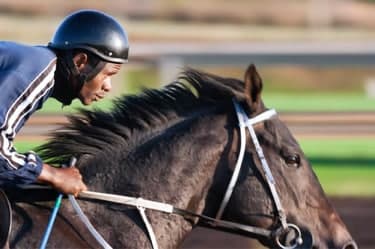Situated in Nairobi, Kenya, the Ngong racecourse is the only thoroughbred racing venue in Kenya and one of only four thoroughbred racing courses across Africa. Ngong racecourse was opened in 1954, replacing the previous Kariokor racecourse that was situated there before. While horse racing in Kenya didn’t begin until 1904 with small ponies, today the venue is highly popular with Kenyans from all walks of life.
Today, there are around 25 meetings held annually at Ngong racecourse. The most prominent event of the year is the Kenya Derby, which was first held in 1914. Today, horse races are held there every alternate Saturday as the venue is also used for cross country running; a sport that Kenyans are known to be successful at and have a strong presence in this sector on the Olympic front. Online betting on horse racing even offers odds on the most prestigious events held there, proving the courses significance on the international stage.
Below, we’ll take a look into the history of Ngong racecourse and discuss the popularity of horse racing across Kenya today.
About Ngong Racecourse
Kenya is a country rich in sport history, in which many Kenyans are into both watching and participating in sport. In fact there are many Kenyans who have won gold medals, from Nabiba Naftali Temu; Kenya’s first gold medal winner and expert long distance runner, to track and field athlete and world record holder, David LekutaRudisha. However, Kenya is known for football, basketball, athletics and long-distance running. Horse racing is more of a rare and unusual sport to see across East Africa.
However, there is a niche crown in East Africa that has a passion for horse racing and this passion is kept alive by Ngong racecourse. In fact, Ngong racecourse is the only thoroughbred racecourse in the whole of East Africa, making its significance all the more greater.
The Kenyan jockey club is the main and only real driving factor behind the Ngong racecourse and work tirelessly to keep the sport alive. Whilst the racecourse is purpose-built for thoroughbred horse racing, the venue is also used for a lot of other sports and events, from track running to motor racing. The design of the racecourse is actually based on that of Ascott in the UK, with its 2400-meter turf, two chutes and six furlongs straight.
The history of horse racing in Kenya
Not surprisingly, it was the Europeans who first introduced horse racing in Africa. Racing events were held as early as the 15th century when Sheikh of Malindi, Sheikh al-Bauri, planned a racing event to entertain Portuguese explorer Vasco da Gama.
However, the first official races did not take place until 1897, when the East African Turf Club hosted an event for the Diamond Jubilee of Queen Victoria. The event took place at the Imperial British East Africa Company administrative forte of Machakos, in which the name of the event was Machakos Challenge Cup.
The race was over half a mile long and was won by a pony called Tempest, owned by Frank Hall, the District Officer at Kiambu. The event sparked a local interest in horse racing, in which several horse racing events were also held after this.
Since then, racing really took off in Kenya and while the activity wasn’t widespread, there was a hotspot of activity in which the press went into a frenzy to try and cover it. Of all the races held across the 20th century, it is reported that there were several famous celebrity guests, including Lord Delamere, Charles Clutterbuck, Berkeley Cole, Sir William Northrup, Lady Lucie McMillan, David and Lady Jex-Blake, Captain Spencer Tryon and even the son of President Roosevelt, Kermit Roosevelt.
A niche audience
Since the 20th century, the niche group of horse racing fans across East Africa have kept the horse racing spirit alive. There are many people who make long rail and bus journeys across East Africa, just to see some of the races that are occasionally held at Ngong racecourse.
However, due to the niche audience, these races still only happen on alternate weekends, whilst the majority of the resources are used for more popular Kenyan events and sports. As such, more and more Kenyans are paying an interest in overseas horse racing, with many people starting to watching international horse racing on their TVs at home or even on their smart devices.
But spectatorship isn’t enough for these diehard fans. Not only are Kenyans and East Africans now making trips overseas to see events like Ascott and the Grand Derby, but more Kenyans are also beginning to take part in the likes of online betting in order to get in on the action.
As technology has made online sports betting more prevalent, Kenyans are becoming highly interested in utilizing their smartphone technologies to be able to join the rest of the world in placing their bets on international horse racing events.
Overall, while horse racing is not a widely popular sport across Kenya and East Africa, there is a hugely passionate niche audience in the region that are keeping horse racing alive in Kenya and is allowing the sport to grow organically. While Ngong racecourse may also need to be home to other sports and events to keep funding the maintenance and running of the venue, it’s clear that many Kenyans are wanting more when it comes to horse racing in the region.



